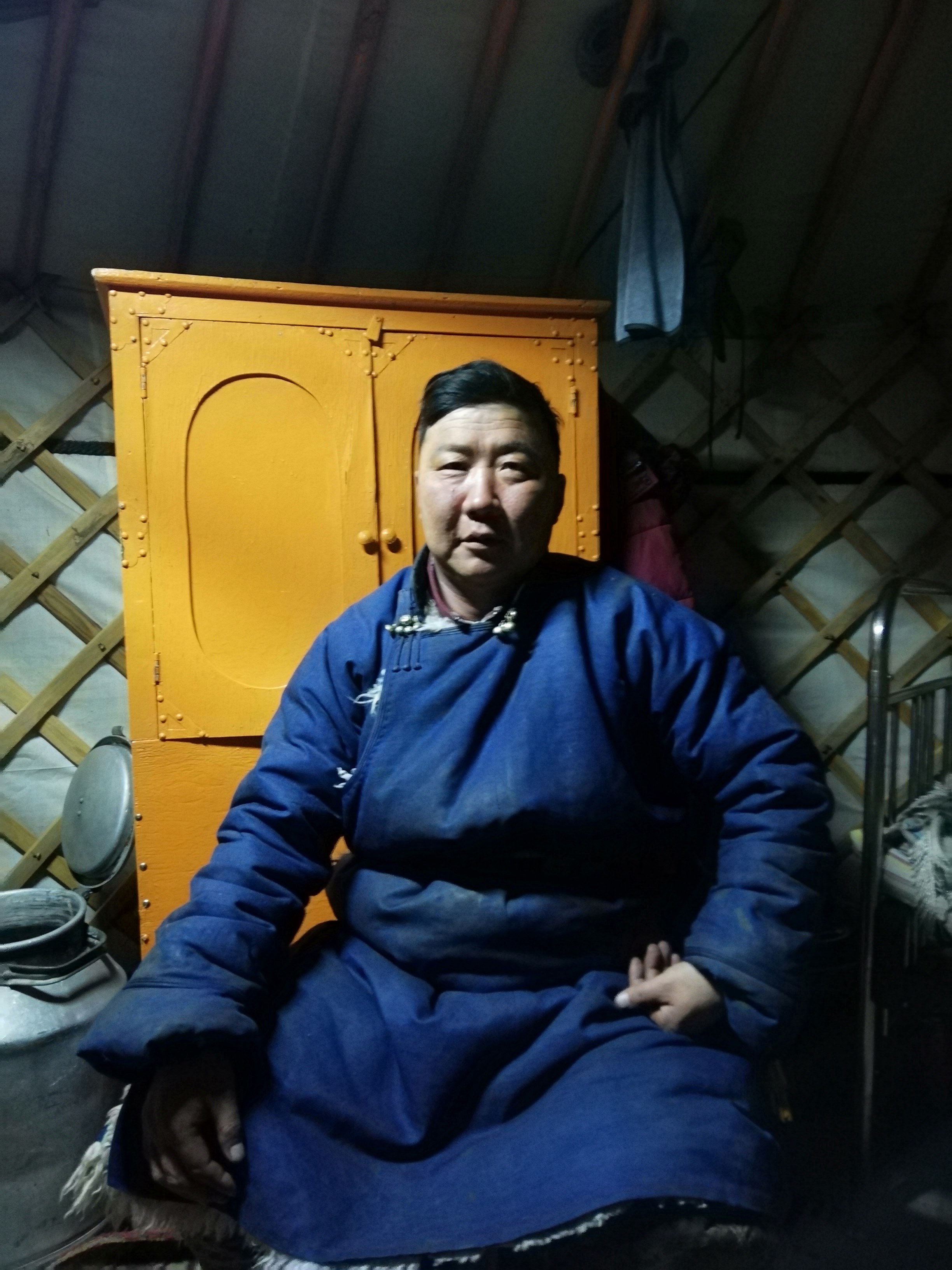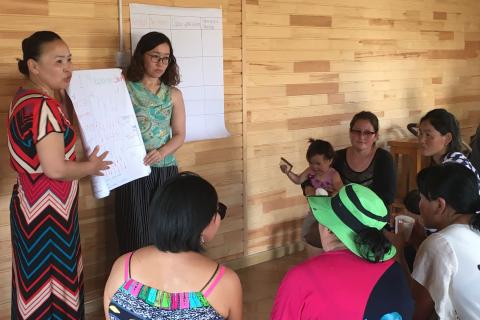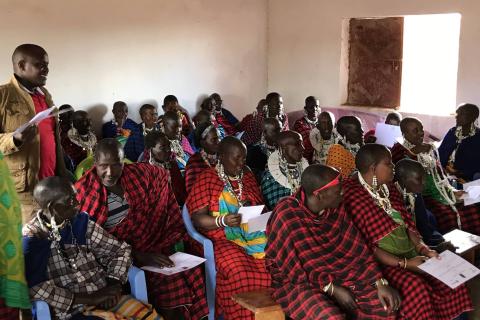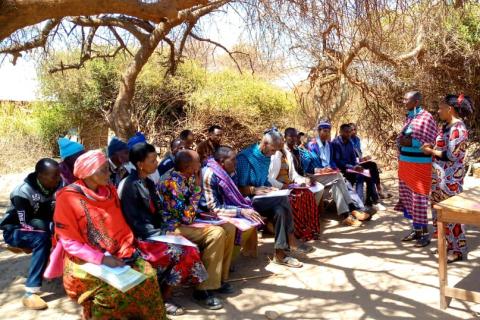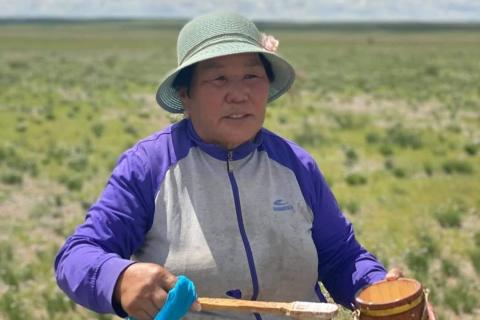By Odgerel, Gender and Land Champion, WOLTS Project Mongolia
I have been a herder in Mongolia for 30 years and my life, like all other herders, depends on good pasture. But our lands are facing a growing problem of pastureland degradation. This is due to mining, but also the increasing numbers of livestock that we have been putting on the land. More animals might make more money in the short term but contribute significantly to pastureland degradation. If we don’t change our ways, we know that in the near future there will be not enough grass for our animals to eat.
While we all know that we need to change the way we use the land, I have been trying to work out how to achieve it. My wife and I started with our own herd, by selecting animals with higher productivity. We decided to keep 10 good milking cows rather than 20 cows with lower productivity. This not only eases my wife's work as she has fewer cows to take care of and to milk, but also brings more income to our family. Most importantly, it will reduce the pressure on the pastureland that we depend on. As well as decreasing the number of livestock we keep, I am planning to grow fodder for my cows to save some parts of the pastureland of our area. I guess that means I am becoming a farmer as well as a herder!
The next challenge for me is to persuade other herders to also reduce their livestock numbers. Together we can show other community members that we all need to act responsibly to save our pasture. This is where my role as a gender and land champion is so helpful. I am proud to have been selected as a champion through working with WOLTS and PCC. I have learned a lot and feel much more confident in talking to other community members, local leaders, and also to mining companies, so we can all work collaboratively to develop responsible land governance.
It will not be a fast process, and I hope we can act quickly enough to protect our pastureland from further degradation, but I feel I have the skills and knowledge now to start making those changes.
Odgerel is a herder from Dalanjargalan Soum in Dornogovi Province in south-eastern Mongolia. He has been a gender and land champion since 2020, having participated in the local champions training programme led by Mokoro’s WOLTS project with Mongolian NGO partners, PCC.
WOLTS Champions’ Perspectives is a blog series in which community members share how they are supporting more inclusive, participatory and gender-equitable land governance in their local communities after taking part in the WOLTS champions training programme.
This article was first published by Mokoro on 30 November 2022 and is available to download here.

